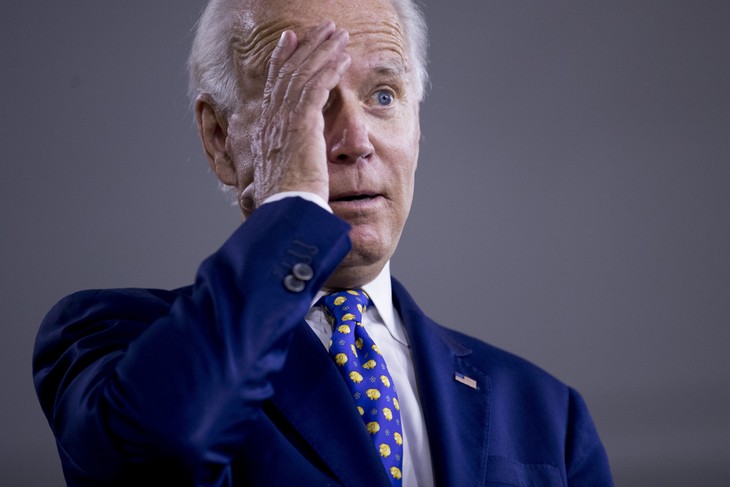This, More Than Anything Else, Might Doom Joe Biden's Campaign

Joe Biden has enjoyed a lead in several national polls and even battleground state polls. Like in 2016, the media has presented the narrative that Biden is on a path to victory, but I would caution them not to count their chickens before they hatch. In addition to the fact that polls have been tightening in the past week, there’s also an interesting metric that has been overlooked to be considered.
According to a recent Pew Research poll, “for Biden supporters, opposition to Trump is by far the most frequently mentioned reason why they support him.” Voters were asked an open-ended question about the main reason they support or lean towards voting for Biden, and a staggering 56% cite their opposition to Trump.
Trump’s supporters, in contrast, “cite a variety of reasons for supporting him, including his leadership and performance as president (23%), his issue and policy positions, as well as their opposition to Biden (19%).”
Support for a candidate that is really based in opposition to their opponent is called “negative support”
The last time there was a Republican president running for reelection, there was a similar phenomenon. Pew Research noted in February 2004 that while John Kerry was “running even” with Bush in their poll of registered voters, “Kerry’s support is less of an endorsement of his candidacy than a reflection of opposition to Bush.”
“Fully twice as many Kerry supporters characterize their choice as a vote against Bush rather than a vote for Kerry (30% vs. 15%). By comparison, Bush supporters are much more affirmative in their feelings about the president: 39% characterize their choice as a vote for Bush, while just 6% see it as a vote against Kerry.”
It also can’t be denied that despite being within points of each other at the polls, there was more enthusiasm for Obama among the left in 2012 than there was for Mitt Romney on the right, resulting in Obama being reelected, despite the poor economy and low support for Obamacare.
We’ve seen “negative support” for challengers result in incumbents’ reelections for decades. One exception would be Clinton it 1992, where, as Pew noted, Clinton’s supporters also mostly saw their vote as anti-George H.W. Bush—though Bush Sr.’s reneging on his “no new taxes” pledge and the formidable candidacy of Ross Perot were extra factors in the elder Bush’s defeat.
The enthusiasm gap between Trump and Biden is well documented, and it remains to be seen if Kamala Harris will actually close that enthusiasm gap. Some have argued whether the enthusiasm gap matters at all. But to those who dismiss the enthusiasm gap as irrelevant, I say they just need to look at John Kerry and Mitt Romney. Both were running neck and neck with their incumbent opponents but trailed in enthusiasm, and ultimately lost.
Mitt Romney, in particular, is a more relevant comparison. He lost to Obama despite the Tea Party movement that ousted Democrats from control of the House in 2010, yet Obama’s popularity helped give him another term. Enthusiasm for Trump on the right is very similar to the enthusiasm Obama had from the left.
That tells me that while enthusiasm doesn’t register in the polling, it does make a difference in the only poll that counts: Election Day.
No comments:
Post a Comment